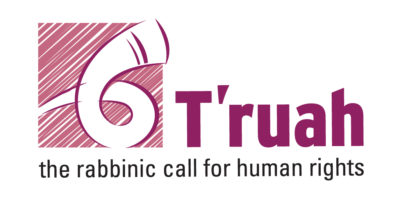Like me, you may have spent much of the past week Whatsapping with friends and family in Israel who have already spent too many nights in bomb shelters. The scale of destruction in Tel Aviv, Bat Yam, Beersheva, Haifa, and beyond is overwhelming. Too many people have already been killed or injured. Shooting ballistic missiles at civilian areas and at a hospital is a war crime.
This is a terrifying moment. None of us can predict the impact of President Trump’s decision to enter the war with Iran. We don’t know whether this military strike will have its intended impact of halting Iran’s nuclear program and making Israelis and Americans safer. I do not know how close Iran was to acquiring a bomb. But I do know that the decision to enter a war must be taken carefully with full understanding of the potential consequences. Despite what President Trump has said, this weekend’s actions are likely to be the beginning, not the end, of a dangerous engagement. Already, Iran has fired retaliatory strikes on U.S. targets in Qatar and Iraq.
I fear this move will lead to further death and destruction in Israel and in Iran, whose citizens also did not choose this war. These strikes mean greater danger of retaliation on American troops and other American targets, and may also endanger the broader Middle East. I am also scared that the expanded war will inspire antisemitic attacks on Jews across the world.
The situation is made even more dangerous by the fact that Israel, Iran, and the U.S. are all run by bombastic leaders who have little concern for the safety or wellbeing of their citizens, who have no respect for democracy or the rule of law, who have utter disregard for truth, and who prefer war over peace.
It is clear that a nuclear Iran is an existential threat to Israel, to the region, and to the United States. Through its proxies, Iran has been attacking Israel since October 7, and for decades before that. The Iranian leadership has spent decades threatening to destroy Israel. Iranian proxies have carried out terror attacks across the world, at both Jewish and other targets, over the course of many years, and Iran has already threatened new terror attacks on American soil. We can’t minimize this. And we still believe that diplomacy should always be the first move. “R. Jose the Galilean said: Great is peace, since even in a time of war one should begin [by attempting to arrange] peace, as it is stated, ‘When you approach a city to attack it, you should offer it terms of peace.’ (Deut. 20:10)” [Derekh Eretz Zuta Perek Hashalom]
Diplomacy, not military force, brings long-term oversight and incentives that can create a lasting peace. We already saw that Iran was willing to enter into the JCPOA in 2015, an agreement canceled by President Trump in 2018, and which allowed for inspection at nuclear facilities. And many reports suggest that diplomacy was working again this time.
One thing is clear: President Trump’s unilateral action was unconstitutional. Congress must convene immediately to pass the War Powers Resolutions introduced in both the House and the Senate to reaffirm that only Congress can declare war. Any decision to enter a war must be made only after comprehensive discussion by Congress of the potential benefits and dangers.
There’s a surprising ruling in the Talmud that says that if every judge on a court votes to convict, the defendant is acquitted. (Sanhedrin 17a) This rule acknowledges that when there is a unanimous guilty ruling, the judges have likely succumbed to groupthink and have not sufficiently raised questions and objections.
About this, Rabbi Joseph Soloveitchik wrote, “If they all saw him as guilty with no aspect of merit, there is certainly some corruption or perversion of justice in that court.” While this is not a situation of guilt or innocence according to the law, it’s clear that a vigorous debate in Congress is similarly necessary before making a decision to enter a war that endangers the lives of millions in the Middle East, as well as of Americans.
Within the Jewish and broader American community too, many have jumped to either blanket celebration or condemnation, often in line with one’s political camp. This may be a moment instead to admit uncertainty, and to consider multiple realities and possibilities.
Even as our attention is drawn to this new front with Iran, we can’t stop advocating for an end to the war in Gaza and to Netanyahu’s attacks on democracy — both of which pose urgent existential threats to Israel’s future.
On Sunday, the Israeli government announced that it had recovered the bodies of three Israeli hostages in Gaza: Ofra Keidar, Yonatan Samerano, and Shay Levinson. I am grateful that their families will have the chance to bury their loved ones in dignity. And this news is a stark reminder that 53 hostages remain in Gaza, including approximately 20 believed to be alive, and that time is running out to bring them home.
Meanwhile, Gazans are being forced into an ever-shrinking “safe zone,” and now 2 million people are living in just 18% of the Gaza Strip. Even within that area, their safety is far from guaranteed, as airstrikes and gunfire continue. Nearly 500 people have been killed in the last week, many while trying to get food from the disastrous and deadly Gaza Humanitarian Fund. Multiple Israelis protesting the war (when able to) have been arrested.
There is a lot we do not yet know, and getting verifiable information is going to be an ongoing challenge. It’s on us to keep asking questions, refusing oversimplifications, and insisting on the rule of law and the primacy of human life.
With prayers for peace,

Rabbi Jill Jacobs (she/her)
CEO, T’ruah

